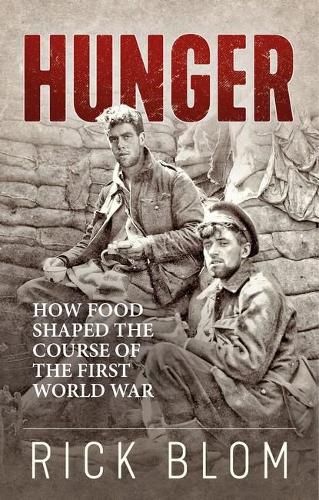Readings Newsletter
Become a Readings Member to make your shopping experience even easier.
Sign in or sign up for free!
You’re not far away from qualifying for FREE standard shipping within Australia
You’ve qualified for FREE standard shipping within Australia
The cart is loading…






Among the numerous books that have been written about the First World War, Hunger stands out for its focus on the role of food in this bloodiest and most gruesome of conflicts. Dutch historian Rick Blom has created a fascinating and absorbing narrative from a wide range of source material, including personal diaries by active servicemen and civilians, historical accounts, food manuals, recipe books, and interviews with veterans. Direct quotes from diaries are deftly merged with an account of the war’s progress from the standpoint of the three principal nations involved: Britain, France, and Germany. Interwoven are vivid descriptions of the author’s own attempts at experiencing at first-hand what it must have been like to be active in combat. Working as a sous-chef in a recreated field kitchen, he takes part in a re-enactment and later spends three cold, hungry, solitary days and nights in a restored trench. Throughout, the author’s focus remains firmly on food, or rather the lack of it, and everything related to it: production, distribution, preparation, quantities, and how these issues influenced the outcome of the war. Recipes from wartime sources conclude each chapter. Hunger makes for a gripping and at times harrowing read. Written by a historian from a country that was neutral during the war, this work offers a new perspective on the conflict on the centenary of the armistice.
$9.00 standard shipping within Australia
FREE standard shipping within Australia for orders over $100.00
Express & International shipping calculated at checkout
Among the numerous books that have been written about the First World War, Hunger stands out for its focus on the role of food in this bloodiest and most gruesome of conflicts. Dutch historian Rick Blom has created a fascinating and absorbing narrative from a wide range of source material, including personal diaries by active servicemen and civilians, historical accounts, food manuals, recipe books, and interviews with veterans. Direct quotes from diaries are deftly merged with an account of the war’s progress from the standpoint of the three principal nations involved: Britain, France, and Germany. Interwoven are vivid descriptions of the author’s own attempts at experiencing at first-hand what it must have been like to be active in combat. Working as a sous-chef in a recreated field kitchen, he takes part in a re-enactment and later spends three cold, hungry, solitary days and nights in a restored trench. Throughout, the author’s focus remains firmly on food, or rather the lack of it, and everything related to it: production, distribution, preparation, quantities, and how these issues influenced the outcome of the war. Recipes from wartime sources conclude each chapter. Hunger makes for a gripping and at times harrowing read. Written by a historian from a country that was neutral during the war, this work offers a new perspective on the conflict on the centenary of the armistice.